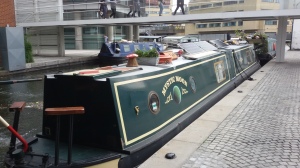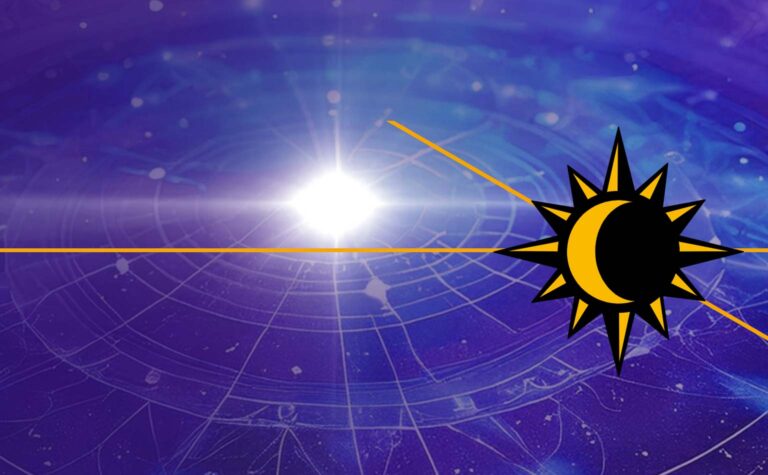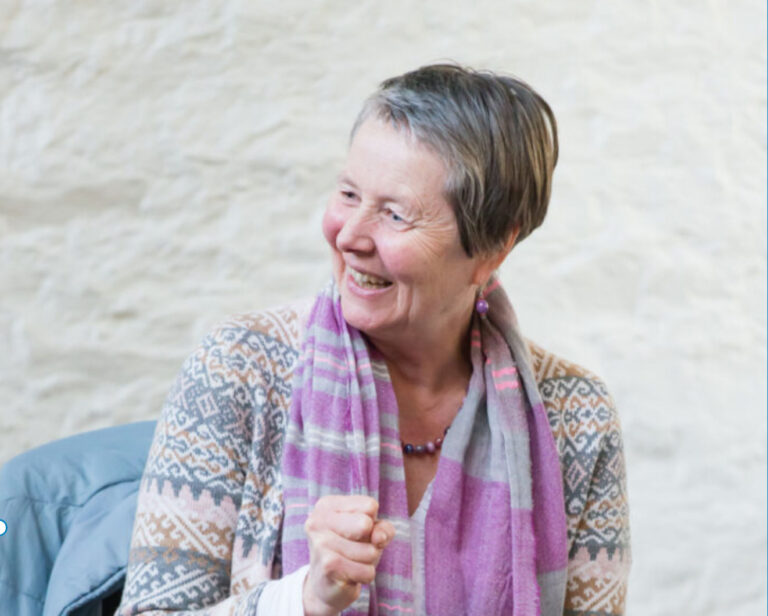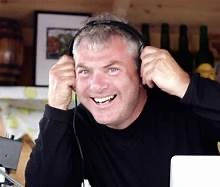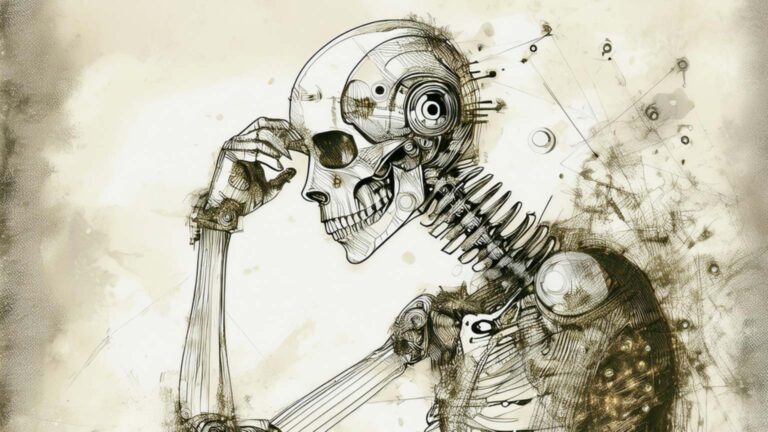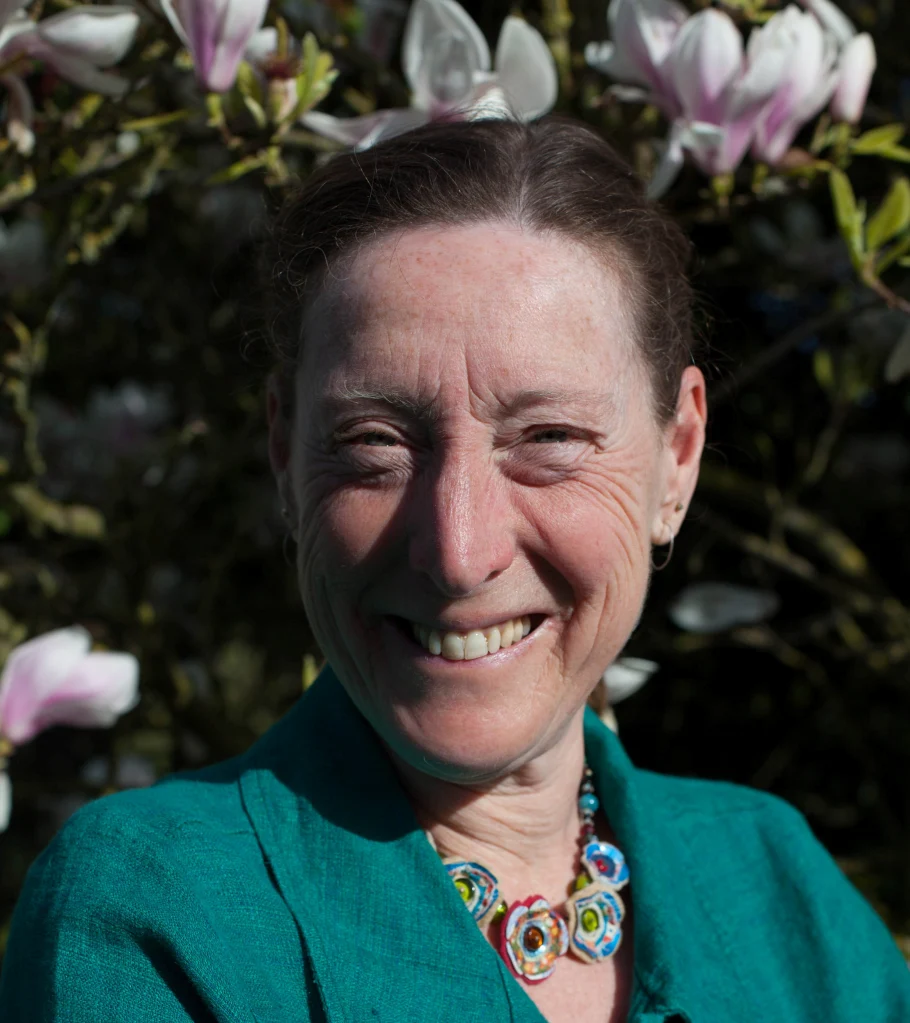
Liz Rothschild is a life and death celebrant, writer and performer. She started Westmill Woodland Burial Ground in 2000. It is located on a beautiful organic farm on the Oxfordshire/Wiltshire border looking up to the ancient Uffington White Horse. Liz is founder of the Kicking the Bucket Festival held in Oxford roughly every two years.
Liz’s funny, moving and informative book, Outside of the Box – Everyday Stories of Death, Bereavement and Life, is to be launched by PCCS Books on Thursday November 26th 6.15 – 8.00pm. To book for this free online event, please click on this link: https://www.eventbrite.co.uk/e/outside-the-box-everyday-stories-of-death-bereavement-and-life-tickets-128091776953
Please contact Liz through: www.woodlanburialwestmill.co.uk | www.fullcircleproductions.org.uk |www.kickingthebucket.co.uk
NOW! Read on to hear about Liz’s amazing contributions to our understanding of death and dying and also to have a sneak preview of her forthcoming book.
Sue: Welcome Liz. It’s such a pleasure to talk with you. Let’s start with how you became interested in working with death and dying.
Liz: I guess like so many people, the unexpected death of a very close friend twenty-five years ago brought me into this work. What happened taught me a lot about what goes on around death and dying in this country and how hard it was to navigate your way through it if you didn’t want an ‘off the shelf package.’
Carol was rushed into hospital with a brain haemorrhage and was dead within 24 hours. She was gay and an atheist, so we knew we had to do it [the funeral] for ourselves. I learnt a lot about the funeral world in the process, and also discovered what an incredible gift it is, when you take some of this back into your own hands. It helped our grieving and bound us really tightly together. We spent days chatting, sharing photographs, stories and food and you know, laughing and crying and coming up with what we wanted to do. This included having Carol’s body in somebody’s flat so people could come to say goodbye in their own way.
Sue: What a beautiful way to say goodbye to someone you love.
Liz: Yes, it was. But I don’t think that everybody should do this. I think the whole point around death and dying is that every family and group of friends should find out what’s right for them. But I’m passionate about the fact that people don’t seem to know what choices are available to them. I see my task as helping people to know what’s possible. So many ask me, ‘Can you actually do that?’ or, ‘Is that really legal?’ In reality, although we think there’s loads of rules around all this stuff, in fact, there are really very few.
Sue: How did Carol’s funeral inspire you to start working as a funeral celebrant?
Liz: On the day of her funeral I ended up being thrust forward as mistress of ceremonies. Loads of people were contributing, but I was threading the event together. And, it suddenly seems so logical, because I’m a performer, writer and director. I realised I was using all these skills. It felt so right and such an honour to be able to use them in this way.
It led onto to holding all kinds of ceremonies to mark those important life moments from naming babies to what to do when a couple couldn’t have children, weddings, menopause etc. However, death was the one that struck me the most resoundingly. It felt to me that our conventional funerals were the furthest from what they should be.
Sue: I guess you must have seen quite a change in the funeral industry since you started working in this area.
Liz: Thankfully, things are beginning to change, but I believe there is still a way to go. The funeral industry in this country is dominated by one large funeral company who conduct 80% of the funerals in the UK. This is not a healthy situation in any business really. So, I’m always looking out for the independent funeral director who is more responsive and flexible in the way they can do things.
Sue: Is this what gave you the vision to create your own natural burial ground?
Liz. Yeah. As I started doing more funerals, I began to want a place where people could do what they wanted; a place which could be really responsive and would also be about community and really affordable.
Fortunately, my partner is a farmer, and we dedicated a field on the land to becoming a burial ground. We set up Westmill Woodland Burial Ground as a community interest company to flag up very clearly that we have a social remit – no individual can benefit from any profits and our aim is about serving the community. We also set up an education wing, where we try and inform and support people in different ways about funerals, dying and bereavement, and we create events that run through the year (or did before Covid), where we encourage people, if they want to, to get engaged with what’s going on.
Sue: To me, this is what community is all about.
Liz: Yes, I guess you could say that we are reconstructing something that was always there. A lot of people who come to us are not religious or have a sort of loose relationship with their religious community. Therefore, they don’t really get the kind of support that happens in close knit religious communities. So, it’s been lovely to see these connections develop.
Sue: I am interested to know more about your educational wing.
Liz: It really important for me that people understand what their options are so they can think about how to prepare for the kind of funeral they want to hold. On the simplest level, it takes the form of a fantastic set of books we’ve got in the office that anybody can borrow. We’ve also got a great section for children. We’ve had a number of families who are concerned about how to talk to their children about what’s happening and who’s died. We also have a whole range of leaflets on various specialist support organisations and websites. I also provide information and point to events on my blog for the burial site.
In 2012, I set up the Kicking the Bucket Festival in Oxford, which was the first festival of living and dying to happen in the UK outside London. It was a fantastic two weeks full of events, workshops, performances, walks, talks and crucially, we had a café. It was wonderful to see people sitting and chatting to each other and sharing their experiences over a cup of tea. I think those spaces in between events are just as valuable as what happens in the events. One woman said it had been the best two weeks of her life!
Sue: That says such a lot about how talking about death and dying helps us to connect together.
Liz: Exactly. We took off our mortality masks and admitted we were going to die. Everyone who walked through the door had accepted this. Even though it was a temporary one, it created a community of people willing to support each other. Sadly, we had to defer this year’s festival due to Covid, but we are aiming to go ahead in 2021 even if it means putting it online – although I am loathe to do that.
Sue: I would love to know more about your book which is just about to come out.
Liz: The book stems from Outside of the Box– A Live Show about Death, the play I wrote and have been performing around the country since 2016. Following the KtheB festival, I wanted to get the message out further afield. The show is created from stories from my own experiences of death and dying and from people I’ve met through my work. While I was touring, I invited audiences to share their own stories too, through post show conversations. These conversations were just amazing and some of them went on longer than the show! People began advising each other, sometimes laughing and sometimes getting furious about things that had happened to them or others.
Last year I realised I had collected literally hundreds of amazing stories about death and dying from sorts of angles. Some of them have been put on my website, but I realised many of these stories needed wider exposure and I am so grateful to PCCS Books for agreeing to publish them.
Sue: What form does the book take?
Liz: It’s arranged in themed chapters, at the end of which an expert commentator responds to the stories and also provides a list of relevant resources. Therefore, I am hoping that the book will appeal to professionals and non-professionals alike. For instance, a GP may know about the dying process but may have very little knowledge about funerals and funeral directors. I also wanted to include not so familiar themes such as pet bereavement. For some people, their pet is their primary relationship, but they can feel embarrassed by the degree of grief they feel when their pet dies.
Another not so familiar theme is dementia. Relatives often have to go through the grieving process of losing their parent before they actually die. There’s this sense of having lost the person that you knew and having to find new ways to respond to this different person who’s still alive. I am also very distressed by the rising levels of funeral poverty, so I have collected stories about how to manage this better. There are also themes on sudden death, violent deaths and disappearances. The final chapter looks at death as a teacher. There are some really beautiful stories in this section.
Sue: I have always found hearing other people’s stories so helpful in my own grieving process.
Liz: Yes. I realise there are increasing numbers of books out there on death and dying and some of them are phenomenal. But almost without exception, they are written by experts – doctors, sociologists, therapists or religious leaders working in the field. The voice of ‘Joe public’ isn’t out there in the same way and these everyday experiences have so much to teach us.
Sue: That’s such a valid point about most books on death and dying being written by professionals in the field. I so admire the fact you’ve given the ordinary yet extraordinary person in the street a voice as well.
Liz: That’s exactly what I think about death – it’s both ordinary and extraordinary. I am really excited about the beautiful original artwork in the book as well. 14 artists have contributed. I am hoping that for some people it won’t be so much about the words, but perhaps one of the images will bring something home to them. So, when something happens in their life, they can go to the relevant chapter and find solace and advice.
Sue: I think when we’re willing to take on board the fact we are going to die, death does become our companion – not in a morbid way, but in a kind of soothing, knowing way.
Liz: I like the word companion. Death is our companion and also our teacher because it reminds us to appreciate that we’re alive. I have such gratitude for my life – I think it’s essential to start with gratitude actually because everything else spreads out from there.
At the same time, I don’t for a moment pretend that I know how I’ll be when the actual moment comes. None of us do. But I do know that accepting I am going to die allows me to stay focused and this enhances my life, which is the opposite of what most people think. I include a great Near Death Experience story in the book about a really grumpy so and so before he had his NDE. When he came back, he was completely different because he began to value his life. For others it is a critical diagnosis that creates the catalyst for positive change.
Sue: Do you think Covid is influencing our relationship with death and dying? It’s certainly thrown death in our face.
Liz: I have a little PostScript in the book about Covid. I am very aware that a lot of fear and anxiety is extremely evident. And, I also feel that a lot of this fear and anxiety was there before but suppressed. Covid has just brought it forward, so the fears about mortality are more out there. Personally, I think in many ways this is a huge plus because it is making us talk more about death and dying. But it also casts a very harsh spotlight on the way our society works, and the inequalities in our society.
Sue: What do you feel about the Government’s message aimed at our youngsters which says, ‘Don’t kill your Granny?’
Liz: I think maybe the right way forward would have been to adopt a policy of more isolation and more hypervigilance for certain vulnerable groups like the elderly and the disabled so that other members of society could go on more normally. I feel incredibly sorry for the young because of all stages of life, that’s the most sociable. Young people need to be with their peers, and they’ve been deprived of that through Covid. I think it’s really tough for them. At the same time, I am not in sympathy with them having massive parties. That seems a little bit extreme.
Sue: Personally, I’m curious about the messages that we have been fed by mainstream media about the way death is hanging over us all the time. Whether you buy into this or not, I’m wondering what that does to us on a psychological level, especially when, as a society, we are so reticent to engaged with death and dying.
Liz: I think we’re going to look at a real upsurge in mental health issues and other problems that are arising out of all of this. It’s a whole mishmash, isn’t it? The fact that this has been thrust forward into our consciousness, and we feel defenceless in the face of it.
It’s so unclear what the right thing to do might be and how to make yourself safe. The reality is that life is always unpredictable and always on a knife edge. However, because many of us in the UK live relatively comfortably in the rich, industrialised West, we haven’t had that sense of the fragility of life that many people around the world have lived with their entire lives.
Sue: It feels to me that Covid is bringing life and death more closely together. But I find the language that’s been used really unhelpful because it sets death up as the enemy.
Liz: I agree with you. That kind of language is really unhelpful. It makes me wonder what policies are going to come further down the line that we will, as a population, feel cowed into submission because we’ve become so anxious and fearful.
Sue: Yes, I can see that happening too, so I’m just wondering what we can take from what’s going on that could be really helpful for us?
Liz: Well, I think one of the things we can take is around the fact that people have been reaching out and connecting with each other. That’s been a running theme through everything. There’s this sense of people supporting one another, because, in the end, what are the most important values about our lives? They are about caring and love. It’s pretty simple stuff really, and this message of caring and love goes back in all cultures.
But, there’s one thing that we haven’t touched on yet, which is the shifts in our environment. These shifts are also about death and dying and destruction and how we integrate all of that.
Sue: What would you say to someone who is struggling with the messages around Covid but who is also aware that something far more powerful is going on with the planet?
Liz: I guess it would depend on the individual but talking is really important. I believe it’s trying not to lock down into our sense of separateness, rather to emphaise our connectedness. I include a beautiful story about a widow who took seven years to join a bereavement support group. She spoke about how difficult it was for her to open up to support. Finally, when she did join a breavement group, she realised she could connect through her brokenness, that it was nothing to be ashamed of and brought her closer to others.
So, I guess one of the most important things we can try to do with our fears is to allow them to exist. We are empowered by hearing about others’ responses and feelings. It’s about the process of being visible and sharing our grief. I see that happening on a really simple level at the burial ground, for example on an open day when people are helping out and talking with each other – those are the moments that help us all.
Sue: Yes, death strips off our labels. Suddenly, we’re not a ‘managing director ‘or the ‘Prime Minister’ or ‘a mother.’ We’re a human being who’s doing whatever we do, in whatever capacity we do it. Why do you think we’ve become so disconnected from this very basic fact?
Liz: I believe it happened when we got disconnected from the land, which happened from the time of the Industrial Revolution. The more we got disconnected from the land, the more we disengaged from the natural processes of life and death. We became too rarefied and stopped seeing things for what they really are. Because we don’t see them, they become more terrifying – the unknown becomes terrifying.
Sue: Do you think this fear around death and funerals is beginning to change?
Liz: One of the things I always love about the natural burial ground is who it attracts. Some people will always think that it’s for hippies, but I’d say in all these years we’ve only had three full blown drums, crystals and sage funerals. The people who come are those who, for example, love gardening or walking. They don’t have to have any particular faith or belief, and the big thing is that there’s lots of time. This isn’t about being on the funeral travelator. A lot of our families are locals and we encourage them to come just to enjoy the peace and quiet or have a picnic or play ball with their children. This is a very different way of relating to a burial ground and much more integrated with life.
I’ve seen shifts in our local Christian community as well. Overall, I’ve seen far more contributions from family and friends in church funerals. I have supported some of these families to get what they want. I think it’s really lovely that people are taking a far more active role in the whole funeral process because they know they can.
Sue: This sounds really encouraging!
Liz: Covid has shut down quite a lot of the developments that were beginning to be set in place. But, I think there’s a movement in the direction I would hope to see. Death Cafes and also Grave Talks (a church of England initiative) have really helped. A lot more death, dying and grief festivals are happening and also the death doula movement, which get people talking together. And, there’s also a new generation of funeral directors coming up – quite a lot of them are women who go about doing things differently. The first natural burial site was in Cumbria in 1993, now there are nearly 300 throughout the UK. So yes, there are definitely changes happening for the better.
Sue: What do you hope these changes will do for us?
Liz: I would hope it would mean that death is more integrated with life. I think that will make us all a bit healthier, because I think once we have managed to integrate the idea of our mortality, apart from anything else, it alerts us to thinking about our lives as something very precious.
The poet Mary Oliver poses such a beautiful question, ‘What will you do with your one wild and precious life? The top five regrets of the dying as listed in Bronnnie Ware’s book all say things like, ‘I wish I’d been more myself’ or ‘I wish I told people I loved them’ or ‘I wish I hadn’t slaved away at my job so hard.‘ I guess if we’re integrated and more connected to our death, we are presented with the possibility to live more authentically and more fully. That’s certainly what I want for myself.
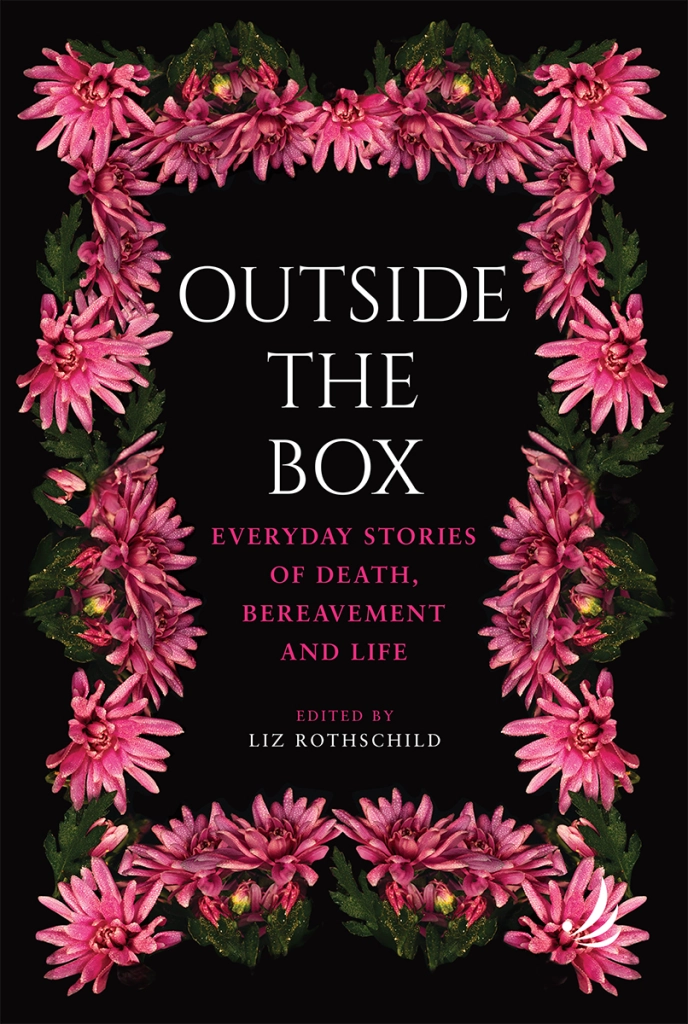
Liz’s book is available from Waterstones and Amazon but best got directly from PCCS because it is cheaper from them and postage is free.
https://www.pccs-books.co.uk/products/outside-the-box-everyday-stories-of-death-bereavement-and-life
The book launch is FREE on on Thursday November 26th 6.15 – 8.00pm. But, you must register through the following link to be sent the zoom link on the night: https://www.eventbrite.co.uk/e/outside-the-box-everyday-stories-of-death-bereavement-and-life-tickets-128091776953



